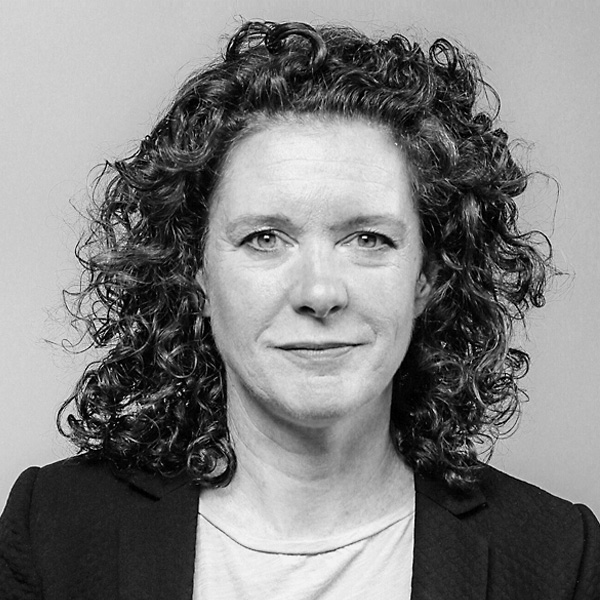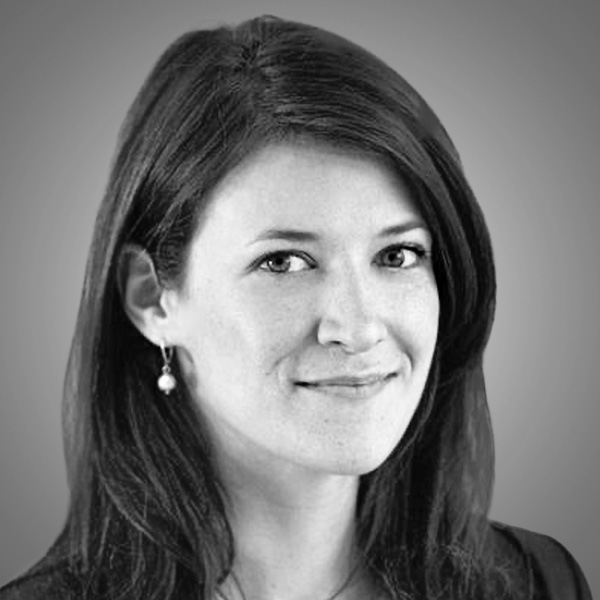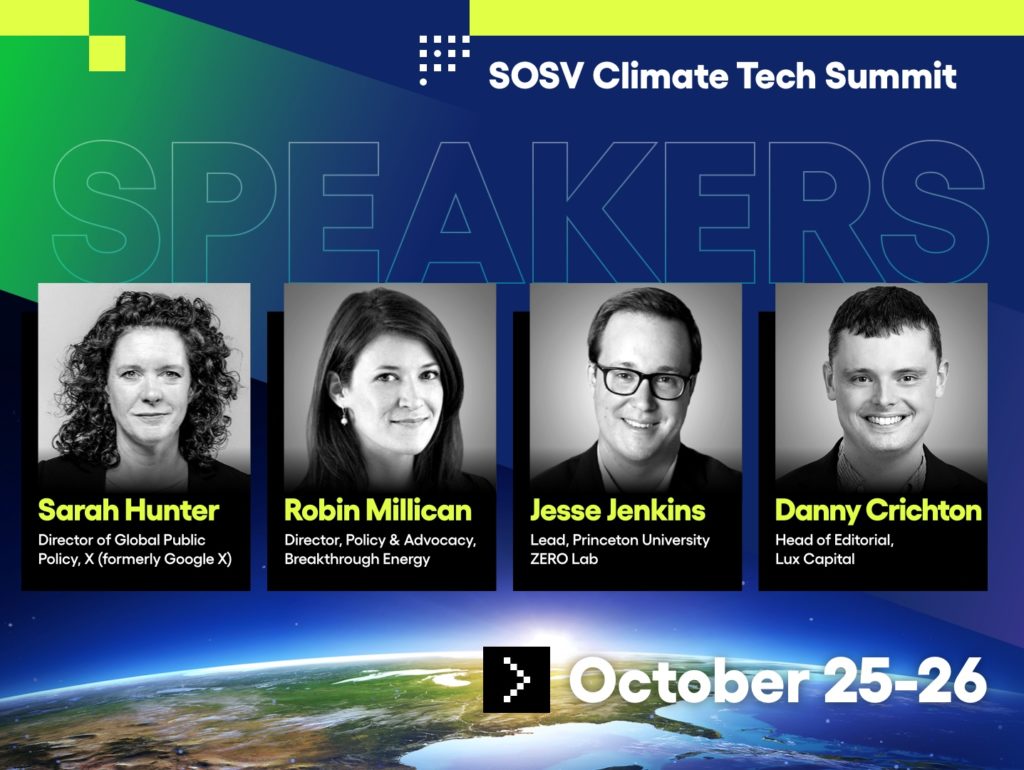
Legislation and regulation can help or hinder new climate technology. For instance, the U.S.’s Inflation Reduction Act of 2022 introduced at least $370 billion in support for of EVs, solar systems, carbon capture, and green energy and more. Meanwhile, U.S. food regulators have yet to greenlight the sale of cell-cultured meats (Singapore did so in December 2020, while Japan was the first to legalize a “CRISPR tomato” in 2021). Unresolved and unstable policies can make it difficult (or expensive) for startups to secure financing. Thus, emerging climate technologies depend to some extent on support from policymakers. But to what extent can climate tech startups and investors shape policy? And how?
The SOSV Climate Tech Summit (Oct. 25-26) gathered a panel of policy specialists to address these questions. You can watch their discussion in the video below.
X, Alphabet’s moonshot factory, counts on Director of Public Policy Sarah Hunter to guide its entrepreneurs through the political implications of their projects. X ventures like Dandelion, a geothermal energy company (speaking on our geothermal panel), and Wing, a low-carbon drone delivery service, certainly raise policy questions.
Robin Millican, Director of U.S. Policy and Advocacy at Bill Gates’s Breakthrough Energy, leads perhaps the largest policy team associated with a climate tech fund. She focuses on advancing policy priorities related to electricity, transportation, manufacturing, buildings, and agriculture.
Jesse Jenkins, a Princeton professor and engineer, heads the Princeton ZERO Lab and REPEAT Project, which are known for their timely analyses of new climate policy. Jesse regularly provides technical analysis and policy advice for nonprofits, policymakers, investors, and early-stage climate tech ventures.
The panel was moderated by Danny Crichton, former Managing Editor at TechCrunch and now Head of Editorial at deep tech VC Lux Capital.
How are these policy specialists creating opportunities for climate technology? What strategies have worked, and what policy battles are coming up next?
Also check out the sessions with the Department of Energy’s Jigar Shah and Minister Grace Fu of Singapore to go deeper into climate tech policy.
The Speakers

Sarah Hunter
Sarah is the Director of Global Public Policy at X (formerly Google X) where she helps engineers, scientists and entrepreneurs invent and launch new technologies to solve big problems in the world today. Before joining Google, Sarah was Prime Minister Tony Blair’s Senior Policy Adviser on Culture, Media and Sport in Downing Street. She is a Trustee of NESTA and a part time lecturer at Stanford University in California.

Robin Millican
Robin Millican is Director of U.S. Policy and Advocacy at Breakthrough Energy, a network of entities and initiatives founded by Bill Gates linked by a common commitment to scale the technologies we need to achieve a path to net zero emissions by 2050. Robin leads the organization’s federal policy and advocacy strategies to accelerate the development and diffusion of clean energy technologies as well as enabling infrastructure.

Jesse D. Jenkins
Jesse D. Jenkins is an assistant professor and macro-scale energy systems engineer at Princeton University. He leads the Princeton ZERO Lab (Zero-carbon Energy systems Research and Optimization Laboratory) and the REPEAT Project (repeatproject.org), which provide regular, timely, and independent environmental and economic evaluation of federal energy and climate policies as they’re proposed and enacted.

Danny Crichton
Danny Crichton analyzes technology and power as head of editorial at Lux Capital, a VC firm investing in emerging science and technology ventures. Previously, he was managing editor at TechCrunch as well as a foreign correspondent based in Seoul, South Korea. He’s been a venture capitalist with General Catalyst in Palo Alto and Charles River Ventures in Boston and New York.

